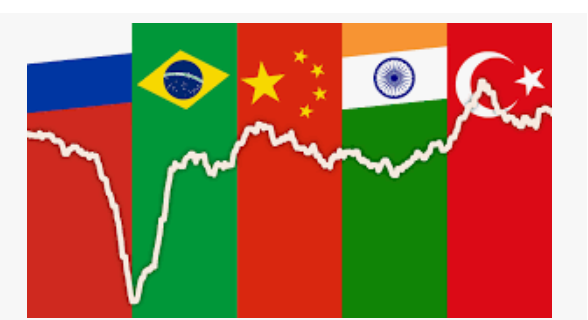Emerging markets currencies headed for weekly declines on Friday as expectations of higher-for-longer U.S. interest rates gained steam, while Turkey’s lira weakened to a record low of 20 against the dollar ahead of a presidential runoff election.
MSCI’s emerging market currencies index was flat by 0847 GMT on Friday, but was set to log declines for the third straight week.
EM currencies have been pressured by a rally in the dollar, with investors scaling back expectations of a rate cut from the Fed this year after a slew of robust U.S. economic data, as well as the lack of an agreement to raise the U.S. debt ceiling with only a handful of days left before the deadline.
“This month’s hawkish re-appraisal of the Fed’s cycle is strengthening the dollar across the board,” ING strategists said in a note.
The strong dollar – and weak Chinese growth – are also posing problems for the currencies of some of the emerging market economies. South Africa’s rand hit a new low against the dollar yesterday despite the South African Reserve Bank (SARB) delivering an expected 50bp rate hike. The governor of the SARB may have been too candid in his comments that he expects the rand to weaken, although he has been saying that for some time. Equally, the normally solid Israeli shekel has traded a lot weaker than we had forecast in our latest FX talking, where this week’s successful passage of the budget has seemingly given the Netanyahu government license to push ahead with controversial judicial reforms, adds the report.
Moody’s: EM slave to US lead
Emerging economies will continue to suffer from the spillover of economic problems in the U.S., which are restricting their market access and pushing up financing costs, a Moody’s report said on Thursday.
A combination of U.S. monetary policy, the banking system stress and “any consequences of the debt ceiling impasse” contribute to weak credit conditions in emerging markets, the credit agency said, adding that the world’s biggest economy is set for a mild recession in the second half of the year.
“The focus of many market participants has returned to the global economic growth outlook and the future path for U.S. interest rates,” the report, led by analyst Vittoria Zoli, said. “Risks to our baseline include whether and how quickly U.S. inflation subsides and the Fed’s response to it.”
Moody’s expects growth to decline “in most emerging markets this year.” Commodity exporters in the Middle East, Africa and Latin America are set to suffer the most, as commodity prices decline due to recession fears and excess supply concerns.
“The increase in commodity prices (with the exception of iron ore) since China’s reopening has been relatively muted if not negative,” the report said.
The credit agency, which rates sovereign debt in 105 emerging markets, added that frontier economies are at a higher risk of default as they are unable to tap international markets.
But it also pointed out that there is a “degree of stabilization,” with the rate of sovereign downgrades relative to upgrades slowing.
Moody’s recently downgraded Bolivia’s rating to Caa1 from B2, Pakistan to Caa3 from Caa1 and changed its outlook to stable from negative, and Kenya’s rating to B3 from B2. Additionally, it placed Egypt’s outlook under review for possible downgrade from stable.
Follow our English language YouTube videos @ REAL TURKEY: https://www.youtube.com/channel/UCKpFJB4GFiNkhmpVZQ_d9Rg
And content at Twitter: @AtillaEng
Facebook: Real Turkey Channel: https://www.facebook.com/realturkeychannel/
